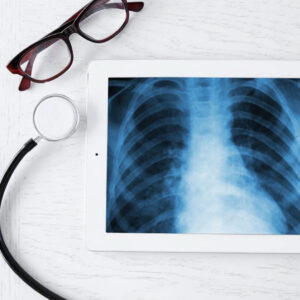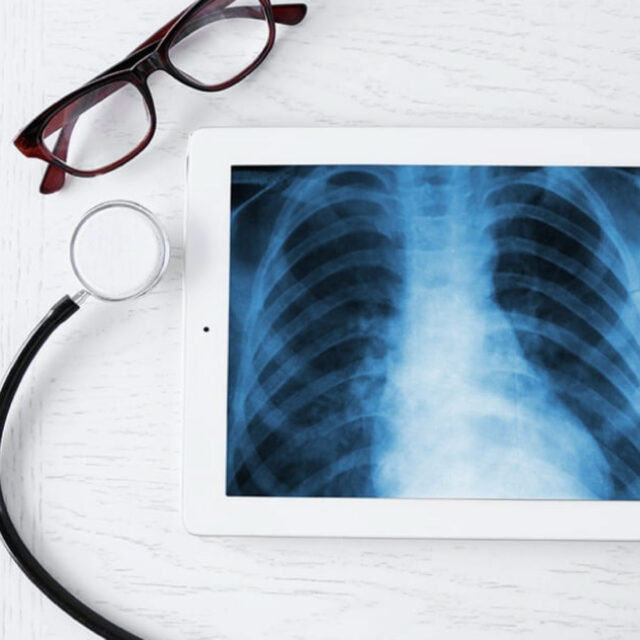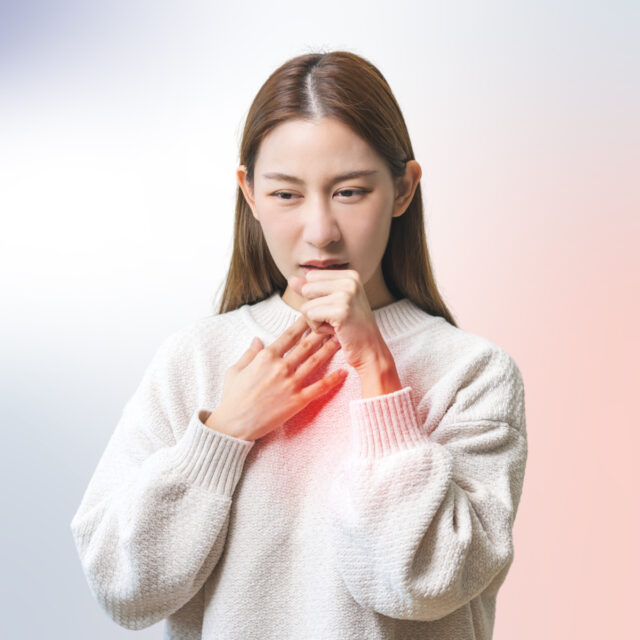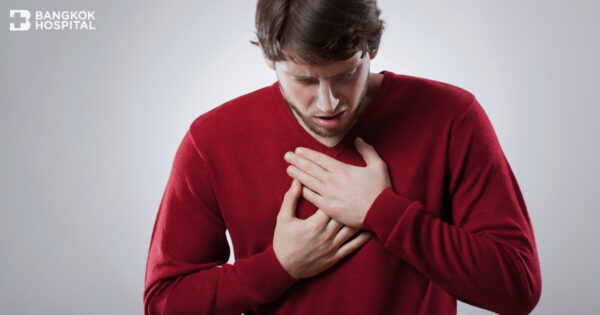The World Health Organization (WHO) has revealed that cigarette smoke is filled with nicotine (a drug), 7,000 chemical substances, more than 250 toxic substances, and over 70 carcinogens. The longer one smokes, the more they risk diseases that shorten life. Furthermore, it also affects those around them (Second Hand Smoker) even if they do not smoke themselves. However, the harmful toxins from cigarette smoke can be as dangerous as smoking oneself. This is especially true for pregnant women, infants, and children who should avoid being close to smokers or environments with cigarette smoke.
Diseases caused by cigarette smoke
- Chronic obstructive pulmonary disease
- Lung cancer
- Heart and vascular disease
- etc.
Lung Cancer
Lung cancer is a common cancer. According to the latest global statistics, 1.8 million people are diagnosed with lung cancer every year. In Thailand, lung cancer is the second most common cancer in men and the fourth in women. Although lung cancer is not the most common cancer, it is the number one cause of cancer mortality because it is a severe disease and often detected in its advanced stage.
Risk factors for lung cancer
-
Smoking, including second-hand smoke, i.e., being exposed to someone else’s cigarette smoke
-
Other risk factors for developing lung cancer, such as radon gas (Radon Gas), asbestos, family history of lung cancer
Symptoms of lung cancer
-
Cough
-
Fatigue
-
Weight loss
-
Weakness
-
Loss of appetite
-
Pain in the body or bones
These symptoms are not exclusive to cancer and are common in those who smoke. By the time symptoms of cancer appear, it’s often in the late stages. It is recommended that those at high risk or those who quit smoking less than 15 years ago undergo a low dose CT Chest (chest computed tomography) once a year for early lung cancer screening, which increases the chance of recovery. If the treating physician suspects it, they will proceed with a biopsy to confirm the diagnosis. After confirming lung cancer, they will perform CT or PET/CT along with MRI of the brain to diagnose the stage of the disease for further treatment planning. If it’s in the early stage, surgery combined with radiation and chemotherapy depending on the patient, the size, and the location of the cancer. If in the advanced stage or “stage 4”, treatment will be with drugs, including chemotherapy, targeted therapy, or a group of drugs called Immunotherapy, which is a new group of drugs used for lung cancer treatment introduced in the last 4 – 5 years as there has been little innovation in treating lung cancer prior, leading to a fast and increasing death rate.
Cigarettes and the Heart
Smoking increases the risk of diseases related to the circulatory system. It is found that smokers are at risk of arterial deterioration and blockage 10 – 15 years sooner than non-smokers, and 25% of those who die from coronary artery disease in developed countries are smokers. Smokers are almost 3 times more likely to die from coronary heart disease than non-smokers.
Key risk factors associated with the onset of the disease include
- Smoking more than 10 cigarettes a day significantly increases the risk.
- Smoking combined with other factors such as high blood pressure, high blood lipid levels, central obesity, and diabetes further increases the risk.
- Normally, the human heart beats about 60 – 80 times per minute, which is suitable for efficiently pumping blood to nourish the body. However, when we smoke, nicotine and carbon monoxide gases cause the heart to beat faster, the coronary arteries to constrict, and lead to changes within the arteries, where fat accumulates on the arterial walls later on. Increased fat in the arteries causes them to narrow, leading to insufficient blood supply to the heart, oxygen deprivation, and acute heart failure. If it occurs in the arteries supplying the brain, it can lead to degenerative brain conditions, resulting in paralysis.
Moreover, cigarette smoke also causes blood platelets to clump together more, shortens their lifespan, quickens blood clotting, and increases blood viscosity, making it easier for clots to form. This can cause arterial blockage in an instant, leading to heart muscle death and possible immediate death.

Bangkok Hospital is ready to provide guidance on quitting smoking to reduce the rate of serious diseases. It starts with deciding to quit, turning to exercise for better physical and mental health, which also benefits those around you.












